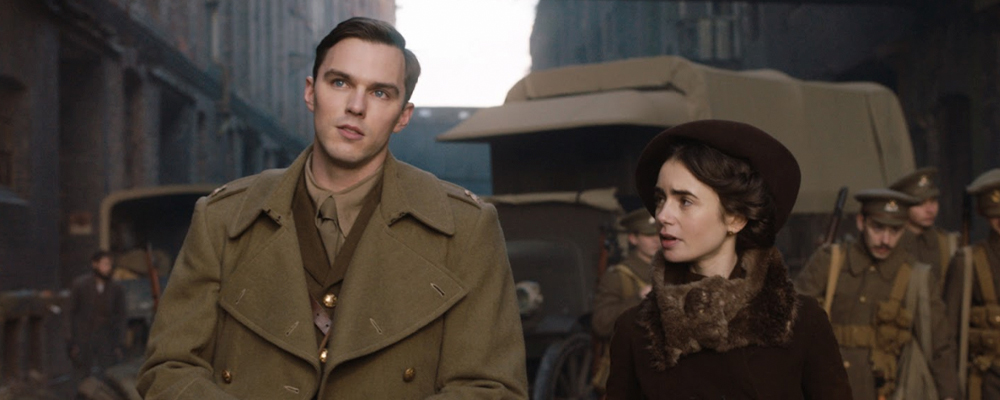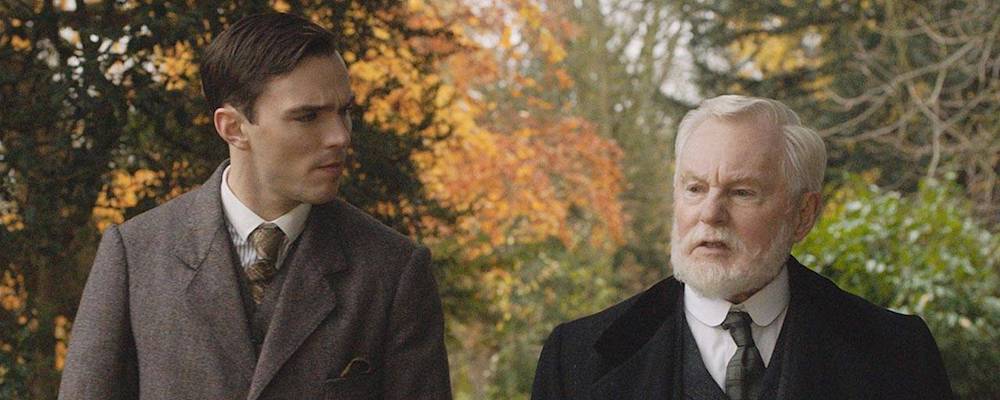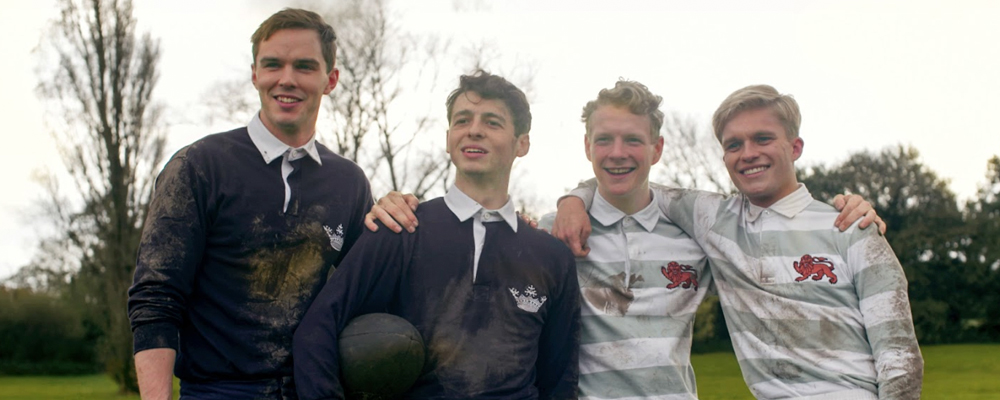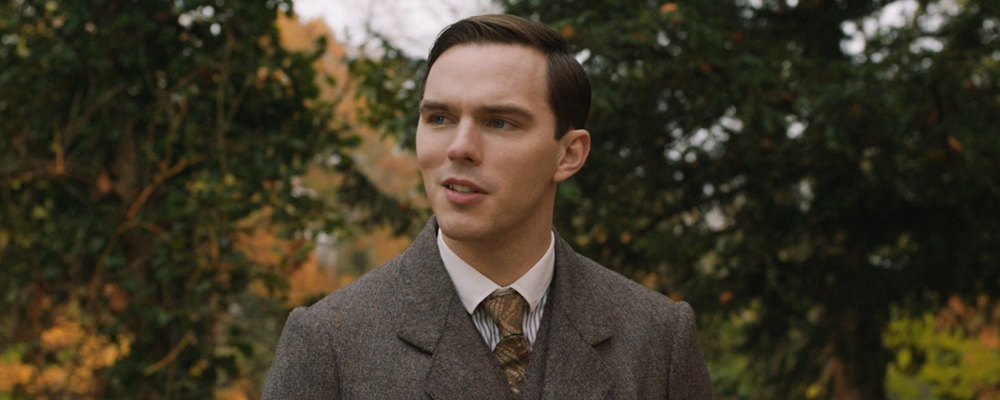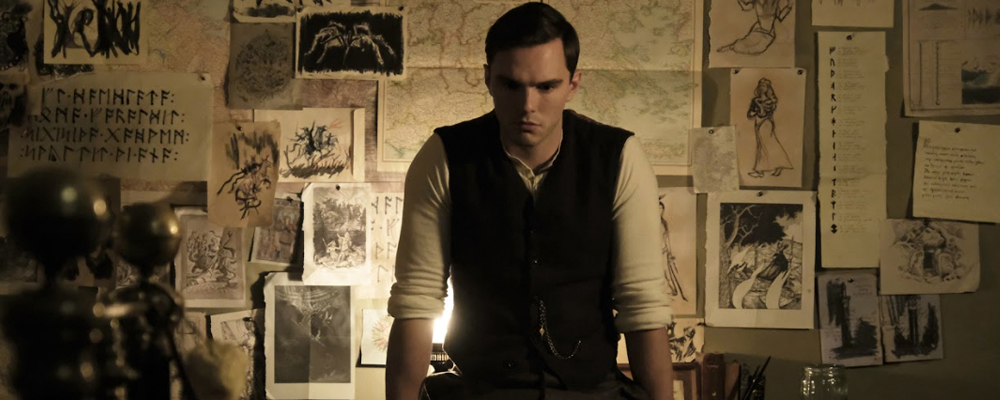‘Tolkien’ Explores the Loves That Drove J.R.R. Tolkien’s Work
Michael Amundsen
“Tolkien, not Tolkine” is the first great debate of the biopic “Tolkien.” Deep within this seemingly trivial contention is the thematic foundation of Dome Karukoski’s lushly romantic film: the power of language and the importance of words. To the young future author of “The Hobbit” and “The Lord of the Rings” trilogy (as played by Harry Gilby), getting the spelling of his name right is key to seeing him as an individual. For the orphaned, lower class ward of the Catholic Church, that visibility is his hope for survival.
“Tolkien” focuses on the author’s youth, from his first arrival at boarding school to the early days of his professorship at Oxford. In between is the graduation period where the role of Tolkien is taken over by actor Nicholas Hoult, the early days at Oxford and the horrors of France during WWI. The WWI scenes are intercut throughout the film as the injured Tolkien searches the battlefield for his school colleague Geoffrey Smith (Anthony Boyle).
The story strives to suggest real-life inspirations for Tolkien’s epic stories of hobbits and Middle-earth. There are fantasies of dragons in the battlefields and factories. Tolkien falls into a “fellowship” of sorts with four other classmates who dedicate themselves to changing the world with art. There is even the suggestion of an elven princess in the form of Edith Bratt (Lily Collins).
The screenplay by David Gleeson and Stephen Beresford resonates with romance. There is the bromance of Tolkien and his school colleagues. Each one desires to pursue a different artistic achievement denied to them by their parents. There is Robert, who really wants to be a painter, Christopher the musician, and Stephen with his desire to write poetry. Their families and teachers repress all four. And only one will ever do something with his talent.
Tolkien’s passion for language is what will define him. Forced with a need to change majors, he comes upon Philology and the cranky mentorship of Professor Wright (the legendary Derek Jacobi). From early on, Tolkien creates languages of his own and puts them at the service of fantastical tales. There is a sweetness about it all that is appropriate to the creator of hobbits and the Shire.
It is the love of Tolkien’s life that brings heart to the film. Tolkien’s love for Edith takes the story deeper; out of the realm of brotherhood and academic pursuit into an area that forces hurtful choices on the young Tolkien, choices that causes him great pain and great joy.
Lily Collins’ brings strong layers to one of the few female roles in the film. Looking like a young Elizabeth Taylor, she exudes a lot of Taylor’s toughness. Being of a lower class, she works as a companion and pianist to a wealthy widow. Like Tolkien’s colleagues, she longs to play Wagner. Instead, her employer insists on light popular ditties. More founded in her reality, she tells Tolkien that words are not beautiful because of how they sound, but instead because of what they mean.
Hoult’s most touching performance lies in his passion for Collins. Unable to attend a promised performance of Wagner’s “Ring Cycle,” they put on their own performance in the storage hall next to the stage. Collins takes the lead pulling Hoult into her fantasy. When Tolkien rejects her in favor of Oxford, she is devastated and yet brutal in her denunciation of him and dreams in general. The passion and love between the two feels real.
Karukoski consistently envelops his movie with rich nostalgic warmth. The production design by Grant Montgomery and the cinematography by Lasse Frank Johannessen creates a world of dreams set in academia, working class factories and wartime. The evocative musical score by Thomas Newman is gorgeous.
The Tolkien Estate has distanced itself from the movie as it overlooks important aspects of Tolkien’s story. Though, this telling works better as a romance with elements of myth than a true biography. The ending may seem rote and expected, but it’s the journey that takes us there that stays with us after the movie is done.
“Tolkien” opens May 10 in theaters nationwide.

